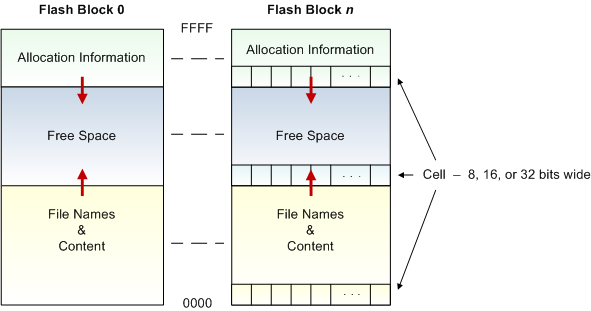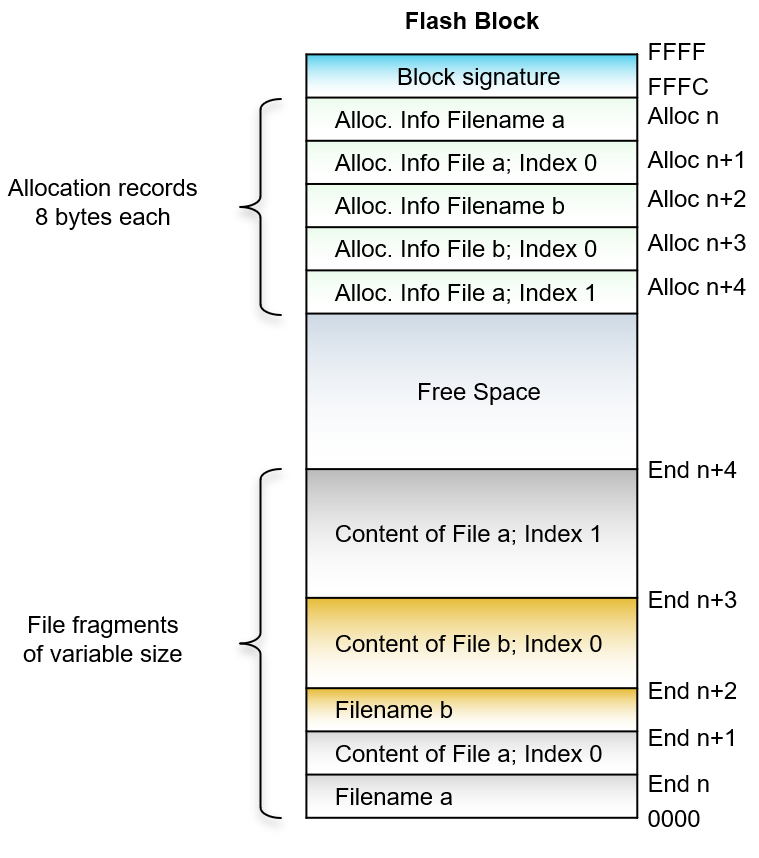 |
File System Component
Version 6.16.6
MDK Middleware for Devices with Flash File System
|
 |
File System Component
Version 6.16.6
MDK Middleware for Devices with Flash File System
|
The Embedded File System (EFS) is a proprietary file system used on NOR flash devices. Basic features are:
A NOR flash device memory array is physically divided into sectors or blocks. The File System Component designates them as blocks. Typically, a block's size is 64 kB which is also the smallest erasable unit. Blocks can be further divided, down to memory cells. The memory cell size depends on the device architecture and is 8- (byte), 16- (half word) or 32-bit wide (word). The memory cell architecture also defines smallest programmable unit, which must be maximum 32-bit for use with the Embedded File System.
Embedded File System organizes each block into three regions:

Allocation information region is located on top of a block and describes the block's content. It consists of block signature and file allocation information records, which are written in descending order. Each file has at least one record associated with it. Multiple records belong to files with content and to fragmented files. A file is fragmented when it is modified or its content size exceeds a single block size and must be stored across several blocks. Several small files are stored into a single block.

Each block contains a signature, consisting of 4 bytes and determines if block is:
The file allocation information record consists of 8 bytes and has the following components:
The file allocation information is written when:
The file names & content region is located at the bottom of a block and is fully defined through the file allocation information records. It consists of file names and file content, which can both be fragmented. The first file fragment always starts at the beginning of a block (at offset 0) and is written in ascending order.
In the Embedded File System, a file name consists of maximum 31 characters. Directories are not supported, therefore any file name which contains a directory separator character, such as slash (/) or backslash(\), is rejected as invalid. Other characters are allowed.
Since file fragments are of variable size, create big file fragments in order to reduce the total number of file fragments and make the best use of a block. Writing or appending small amounts of data to a file is not optimal, since such an approach creates a large number of allocation information records. They consume free space and the required processing time results in a slow file access time.
When the file content is modified, the old file content is invalidated and a new file fragment is allocated. a block is erased when all the data stored within has been invalidated.
The following restrictions are applicable to the EFS: